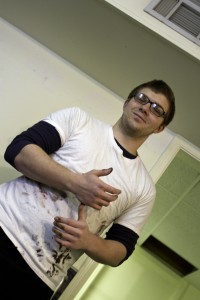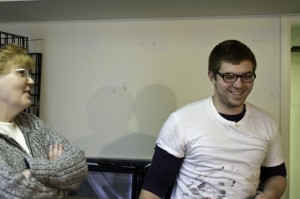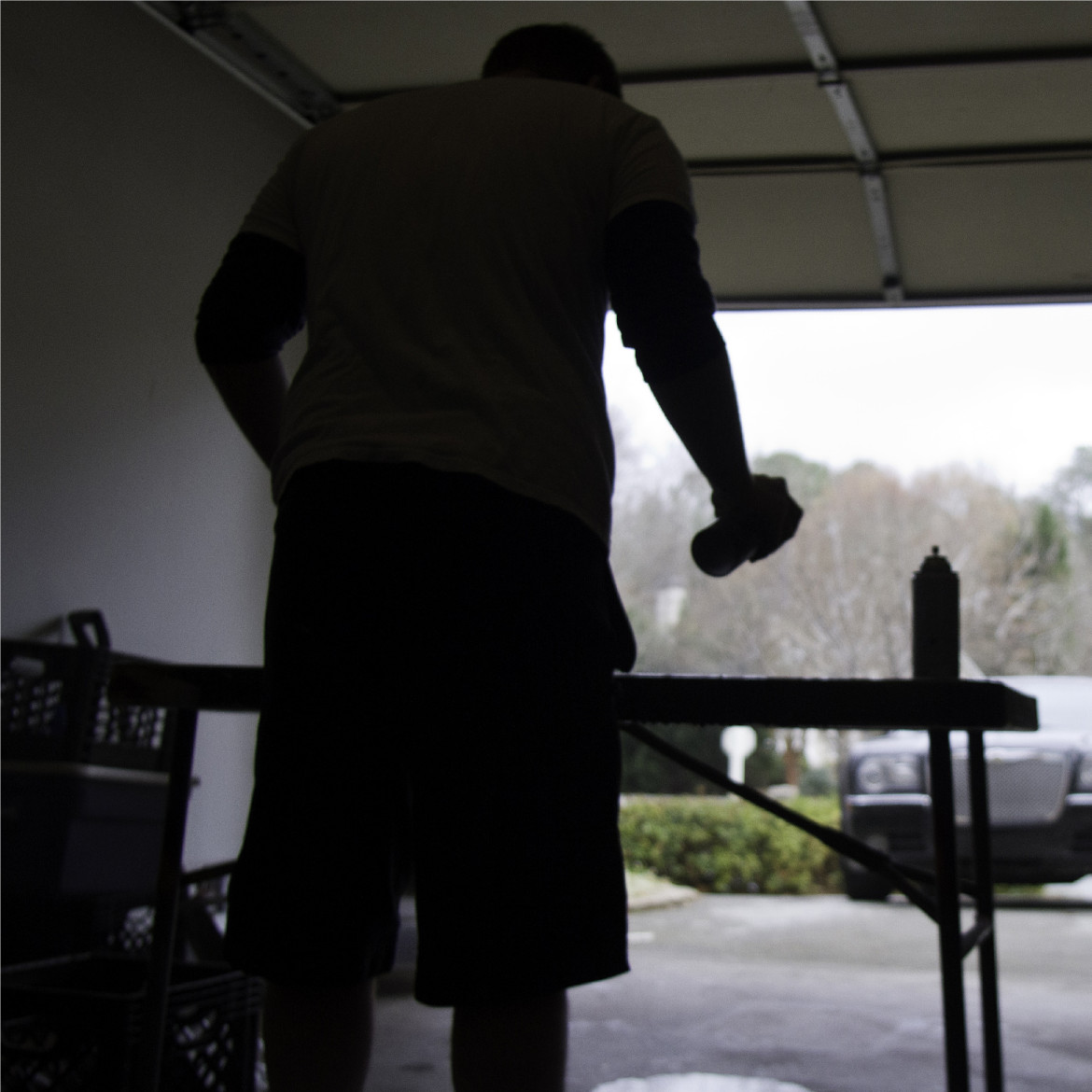Just joining us? This is part two of a five part series. Start from the beginning.
Juvenile Court Judge Juanita Stedman, who presides over Cobb County, Georgia’s Juvenile Drug Court has gotten to know Kyle quite well the past three years.
Yes, he was one of the most dangerously addicted kids she’s seen. And she’d seen plenty of heartbreaking cases that ended in tragedy.

Kyle Boyer
In the more affluent suburban high schools in Cobb County, north of Atlanta, Stedman said drugs, particularly prescription painkillers, stimulants and benzodiazepines (or benzos) are easy to obtain. And sometimes, these drugs aren’t dealt with seriously inside kids’ homes.
“There’s a sense that, ‘it’s only alcohol’, or ‘at least it’s only marijuana’, or ‘it’s just a pain pill,’” Stedman said. “To some permissive, or head-in-the-sand parents, as long as they don’t hear words like crack, heroine or meth, then it can’t be all that bad.”
That passive logic has landed hundreds of addicted kids in her court.
Hindsight being what it is, the Boyers now can see a few warning signs they shrugged off initially. The most glaring one was when Kyle was in eighth grade and was caught selling some pain pills he’d gotten from his parents’ medicine cabinet.
“We wrote it off,” John Boyer said. “I talked to him, and I believed him when he said he did a stupid thing and wasn’t going to do it again.”
Police thought it was far more serious. Kyle was arrested, charged with distribution of a controlled substance and put on 12 months probation.
By then, Kyle had the beginnings of addiction.
Twice in seventh grade, he’d been prescribed pain pills – once for appendicitis and once when he broke his knee. Kyle discovered he felt better on the pills than he did when he wasn’t taking them. So at the age of 12, he began to lie when asked how his knee or appendix was feeling.
Long after the injuries had healed, he’d tell his parents they still hurt. In truth, Kyle was hurting – it just wasn’t his knee or appendix.
He and his family had moved from Austell to Acworth, Ga., in Cobb County, when Kyle was in fourth grade. A bit large and sluggish for his age, classmates picked on him over the years. He was put in some special education classes, widening the target.
 “I didn’t feel like I fit in, and the drugs were my escape,” Kyle said. “When I was high, I didn’t care what people thought of me. Pretty soon, any chance I had to get high I would, even if I had to steal it from someone’s house. At first, that just meant when I was at a friend’s house, I’d snoop and look in medicine cabinets.
“I didn’t feel like I fit in, and the drugs were my escape,” Kyle said. “When I was high, I didn’t care what people thought of me. Pretty soon, any chance I had to get high I would, even if I had to steal it from someone’s house. At first, that just meant when I was at a friend’s house, I’d snoop and look in medicine cabinets.
“Eventually, by the time I was a freshman at Harrison High School, I started not caring about anything. I didn’t care about friends, family, anything. All I cared about was getting high. If you weren’t getting high, I didn’t want anything to do with you.”
Kyle said it is ridiculously easy to buy pills at any of the high schools he’s attended. Harrison was more affluent than either Allatoona or Kennesaw Mountain, also in the North Atlanta suburbs. That meant it was the easiest of the three, and finding a dealer never was much work.
“It was easy to get, and I started the day by taking 8 to 12 Vicodins or maybe four OxyContins and go from there,” he said. “I’d do anything I could to get my hands on something that was making me feel so much better about myself. Oxy and morphine tablets were my drugs of choice.”
Many of the pills were cheap. OxyContin was not. Kyle said he could buy Vicodins for a few dollars each but that each 40 mg tablet of OxyContin would cost him about $20.
Most of the time, Kyle would get high in school, or at home after school, in his room, in front of the TV. He wouldn’t go out, break curfew, and come home stumbling. He’d just chill. And that made it all the harder for his parents to detect.
“I preferred to get high alone,” he said. “I didn’t put two and two together. I knew I was sad a lot, but I think I was denying the fact that I was clinically depressed. I had low self-esteem and was almost never happy.”
But he wasn’t opposed to getting high at school either. Kyle was kicked out of Allatoona High School for having alcohol he had bought on school grounds.
“I poured a tad bit of coffee into a travel mug, then the rest was vodka,” Kyle said. “The two are not a great combination, but it smelled like coffee.”
For the next couple of years, this was Kyle’s pattern. Aside from his stays in the youth detention center, and getting tested for drugs monthly, he spent 30 days at Ridgeview, an Atlanta youth rehabilitation center. Usually, he’d stay clean for a few weeks or so before jumping back, head first, into his addiction.
 Judge Stedman could have kicked Kyle out of her court and let the state deal with him, particularly after three relapses. The drug court, which comes with family counseling, periodic drug testing and mandatory attendance in a weekly court session, is not set up for kids to get chance after chance. It’s a privilege -- a chance to stay out of the state system and take advantage of counseling and therapy.
Judge Stedman could have kicked Kyle out of her court and let the state deal with him, particularly after three relapses. The drug court, which comes with family counseling, periodic drug testing and mandatory attendance in a weekly court session, is not set up for kids to get chance after chance. It’s a privilege -- a chance to stay out of the state system and take advantage of counseling and therapy.
The Boyers know that Kyle had to try Judge Stedman’s patience.
“I think she saw something in Kyle,” John Boyer said. “He never lied to her. When he used, he’d tell her, ‘There’s no need to test me, judge. I’ve used.’”
Steadman did give Kyle more rope than others. What is usually a six-to-nine-month program became a two-year program for Kyle.
“Kyle was one of the most addicted kids I’ve seen.” Stedman said. “We were really worried about him. But his mom and dad came every week, sat on the front row, and were so supportive of him and what we were doing, that we knew he had a chance. That kind of support system is very important.”
How significant was the grace and love and discipline offered by the drug court folks?
“There’s no doubt in my mind that without drug court, we’d have buried our son by now,” said Suzanne Boyle, Kyle’s mom.
John nodded in agreement.
So did Kyle.
Continue reading: Kyle finds hope in a classmate who offers friendship and a way out.
Multimedia credits: Clay Duda

“There’s a sense that, ‘it’s only alcohol’, or ‘at least it’s only marijuana’, or ‘it’s just a pain pill,’” Stedman said. “To some permissive, or head-in-the-sand parents, as long as they don’t hear words like crack, heroine or meth, then it can’t be all that bad.”
– It think it is very common to think like this. Sad but true :/
New York Times runs its own story of OxyContin running rampant among youth in Ohio County. See: Ohio County Losing Its Young to Painkillers’ Grip
http://www.nytimes.com/2011/04/20/us/20drugs.html?_r=1&hp